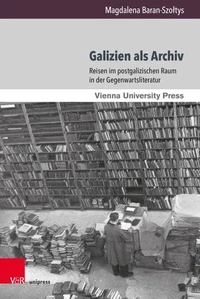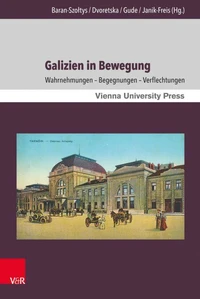Continuities and Discontinuities of the Habsburg Legacy in East - Central European Discourses since 1918. With a foreword by Christoph Augustynowicz
Par : , , ,Formats :
Disponible dans votre compte client Decitre ou Furet du Nord dès validation de votre commande. Le format PDF est :
- Compatible avec une lecture sur My Vivlio (smartphone, tablette, ordinateur)
- Compatible avec une lecture sur liseuses Vivlio
- Pour les liseuses autres que Vivlio, vous devez utiliser le logiciel Adobe Digital Edition. Non compatible avec la lecture sur les liseuses Kindle, Remarkable et Sony
 , qui est-ce ?
, qui est-ce ?Notre partenaire de plateforme de lecture numérique où vous retrouverez l'ensemble de vos ebooks gratuitement
Pour en savoir plus sur nos ebooks, consultez notre aide en ligne ici
- Nombre de pages221
- FormatPDF
- ISBN978-3-8470-0923-8
- EAN9783847009238
- Date de parution20/01/2020
- Protection num.pas de protection
- Taille7 Mo
- Infos supplémentairespdf
- ÉditeurV&R Unipress
Résumé
In 1918 the Danube Monarchy ceased to exist and its provinces became parts of the Monarchy's successor states, which increasingly assumed the character of nation-states. The regimes of these countries were usually oblivious and/or hostile to remnants of the erstwhile Austrian rule due to ideological reasons: they treated them as traces of a superimposed imperial power and an alien - democratic, pluralistic, liberal - tradition.
Notwithstanding that fact, erasing the Habsburg Empire from maps of Europe did not entail the entire cancelation of its legacy on the former Habsburg territories. Although officially neglected or suppressed, this legacy made itself felt, overtly or tacitly, in discourses present in the public sphere of the countries that superseded the Monarchy.
Notwithstanding that fact, erasing the Habsburg Empire from maps of Europe did not entail the entire cancelation of its legacy on the former Habsburg territories. Although officially neglected or suppressed, this legacy made itself felt, overtly or tacitly, in discourses present in the public sphere of the countries that superseded the Monarchy.
In 1918 the Danube Monarchy ceased to exist and its provinces became parts of the Monarchy's successor states, which increasingly assumed the character of nation-states. The regimes of these countries were usually oblivious and/or hostile to remnants of the erstwhile Austrian rule due to ideological reasons: they treated them as traces of a superimposed imperial power and an alien - democratic, pluralistic, liberal - tradition.
Notwithstanding that fact, erasing the Habsburg Empire from maps of Europe did not entail the entire cancelation of its legacy on the former Habsburg territories. Although officially neglected or suppressed, this legacy made itself felt, overtly or tacitly, in discourses present in the public sphere of the countries that superseded the Monarchy.
Notwithstanding that fact, erasing the Habsburg Empire from maps of Europe did not entail the entire cancelation of its legacy on the former Habsburg territories. Although officially neglected or suppressed, this legacy made itself felt, overtly or tacitly, in discourses present in the public sphere of the countries that superseded the Monarchy.




